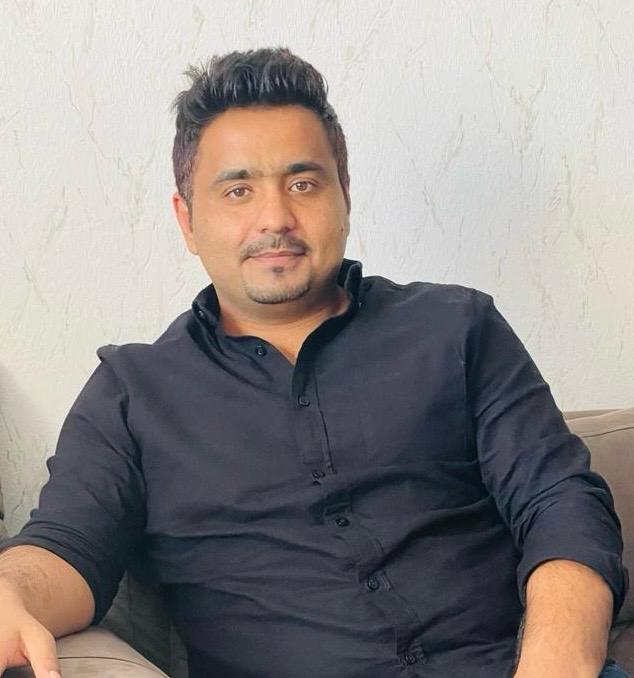
Master
Social Sciences in Europe
Short info about the course of study
| Restricted admission | Standard period of study | Start of studies |
| no | 2 semesters | Summer and winter semester |
Authorisation procedure
The program is admission-free, but an application is required.
Application deadline
15.12. – 15.03.
01.04. – 15.09.
completion
Master of Arts
Further information about the degree programme
Language of instruction
German and English
The course of study
The one-year M.A. Social Sciences in Europe provides you with research-oriented, theory-led and interdisciplinary knowledge based on the current state of international research in the social sciences.
A focus is placed on the diversity of social and political realities and the complex, often cross-border transformation processes of the present.
The focus of the course is on the development and implementation of your own final project. The master's thesis should be in the field of Europe, transnationalization or globalization or take an international comparative perspective. With the degree, you can develop independent social science analyses and appropriate solutions that are required in a variety of professional fields.

5 Reasons for Your Social Sciences in Europe Studying in Siegen
✓ one-year Master's programme
✓ interdisciplinary (political science and sociology)
✓ current and internationally comparative research questions (topics: Europe, Transnationalisation or Globalisation)
✓ good connection between research and teaching
✓ Possibility of promotion
Career prospects
The Master provides you with knowledge, skills and methods that can be used in a variety of academic fields of activity. Employers and areas of responsibility are, for example,
- internationally operating companies or organisations of a governmental and non-governmental nature (e.g. institutions of the European Union)
- Advisory staff and general secretariats of foundations
- Parties, associations or public administration

Mohammad Murtaza Haqeeqat says:
“The program’s academic rigor is another highlight.”
Read more
Studying for my Master’s in Social Sciences at the University of Siegen has been a transformative experience that has greatly enhanced my academic and personal growth. As a student with an immigrant background, navigating the German educational system was initially challenging, but the exceptional support from academic advisors made the transition smooth. Their guidance helped me select courses that align with my goals and career aspirations.
A standout feature of the program is the clear instructions in the module manual, which provides a comprehensive roadmap for students, outlining curriculum, learning outcomes, and expectations. Despite speaking German at a C1 level, I found it challenging to connect with local students. However, collaborative projects and seminars allowed me to engage meaningfully with peers. I am particularly proud of having taken seminars conducted in German, despite living in Germany for less than three years. This immersion has strengthened my language skills and enhanced my integration into the local community.
The program’s academic rigor is another highlight. Lectures are dynamic, encouraging critical thinking and participation. Through this program, I have deepened my understanding of key issues like democracy, migration, and social cohesion. Interactive Seminars Foster Various Perspectives and Encourage Us to Apply Theory to Real-World Contexts. The feedback from lecturers has been invaluable in improving my research and writing. As I approach my final semester, I am particularly excited about the opportunity to write my Master thesis. This capstone project allows me to delve into topics I am passionate about, especially concerning social cohesion and integration within German societies. The knowledge and analytical skills I have gained throughout the program have equipped me to tackle this academic challenge with confidence.
Admission requirements
- Completion of the four-year bachelor's degree programme in social sciences in Europe or a comparable degree programme with at least a grade of "good" (2.5).
- In addition, knowledge in the field of European studies, globalisation or transnationalisation of at least 36 CP must be demonstrated.
- The bachelor's program should have included a study abroad in the amount of 60 credit points.
Applicants with a degree in comparable, but only three-year Bachelor's degree programs must also prove a successfully completed, at least one-year and professionally relevant degree abroad.
The current (specialist) examination regulations always apply.
Study organisation
Subject examination regulations including course plans and module descriptions
Framework examination regulations (RPO-M) and the general subject-specific regulations of the subject examination regulations (PHIL-FPO-M) define the general framework conditions for studying in Siegen and at the Faculty of Arts and Humanities.
In addition, subject examination regulations of the individual (sub-)courses (FPOs) determine the basic structures of a (sub-)course (e.g. entry requirements and content to be studied). The subject examination regulations are accompanied by course plans, which represent the recommended exemplary course of study in the individual subjects, as well as module descriptions (content information on modules).
For students, the current version of an FPO automatically applies when enrolling in the first semester.

Advice and contact
Make an appointment now at:
info.studienberatung@zsb.uni-siegen.de
or by phone at: 0271 740-2712
(Mon – Thu: 9 a.m. - 4 p.m. / Fri: 9 a.m. – 12 noon)